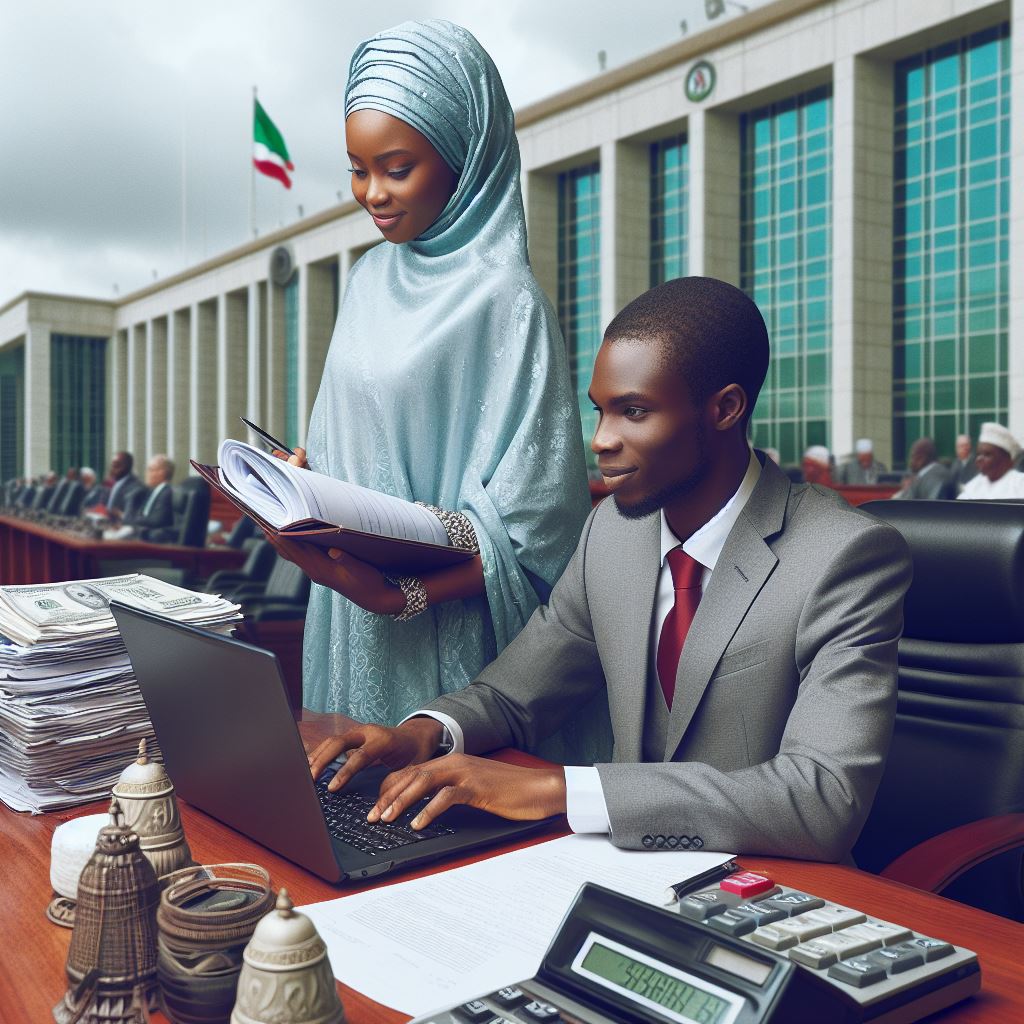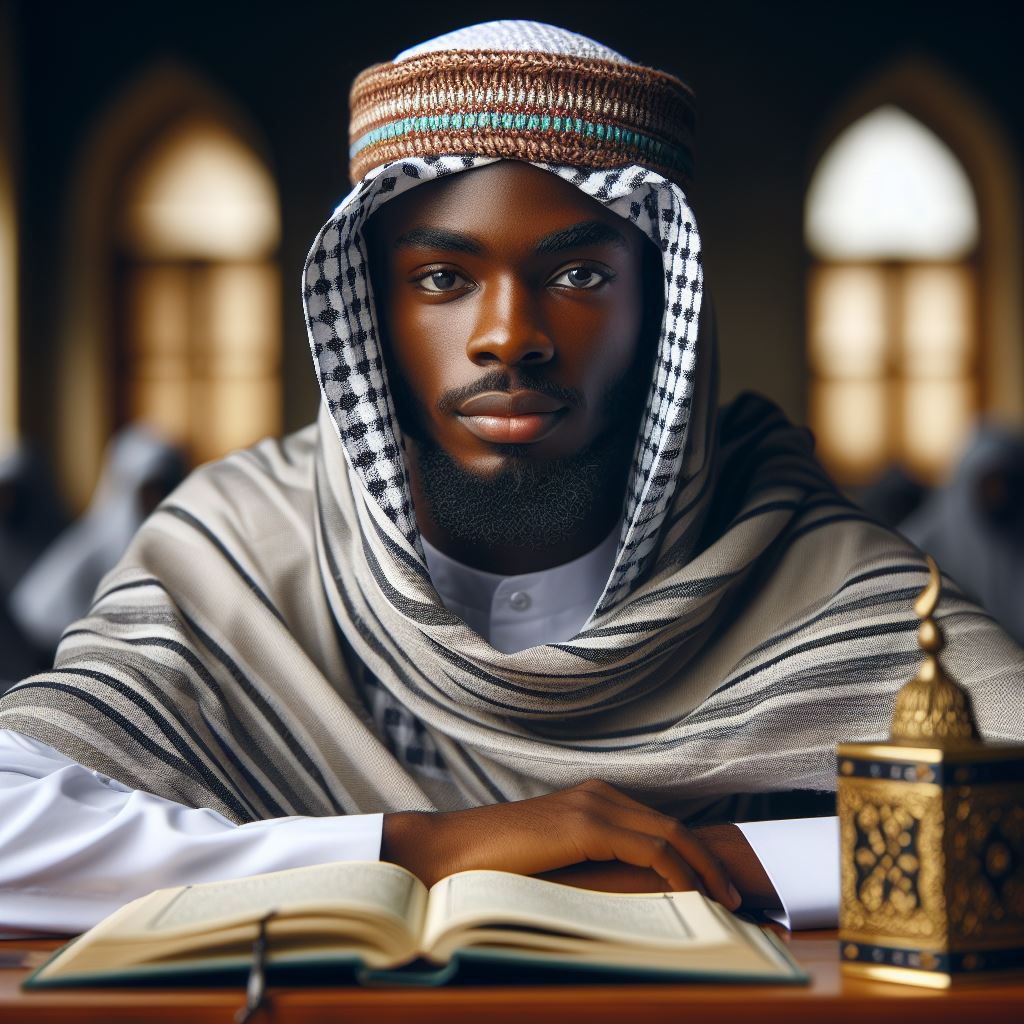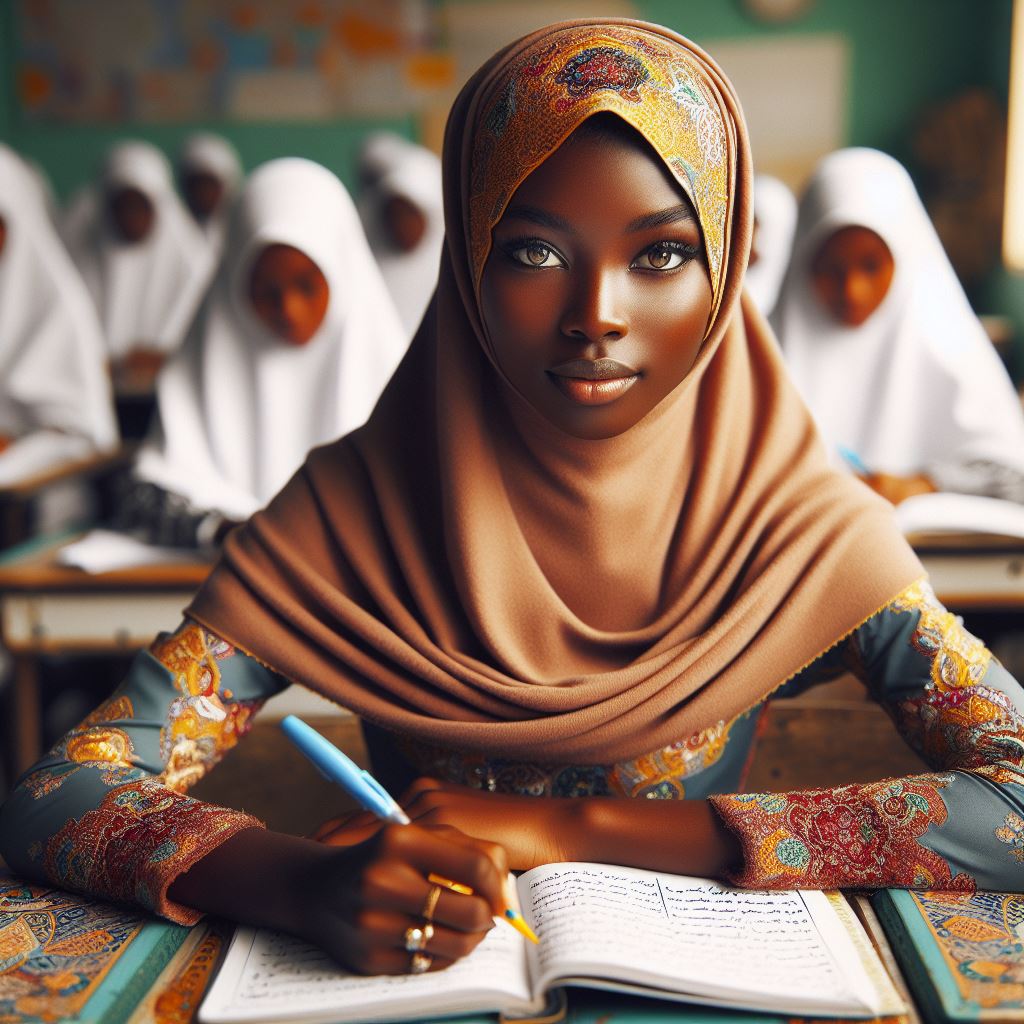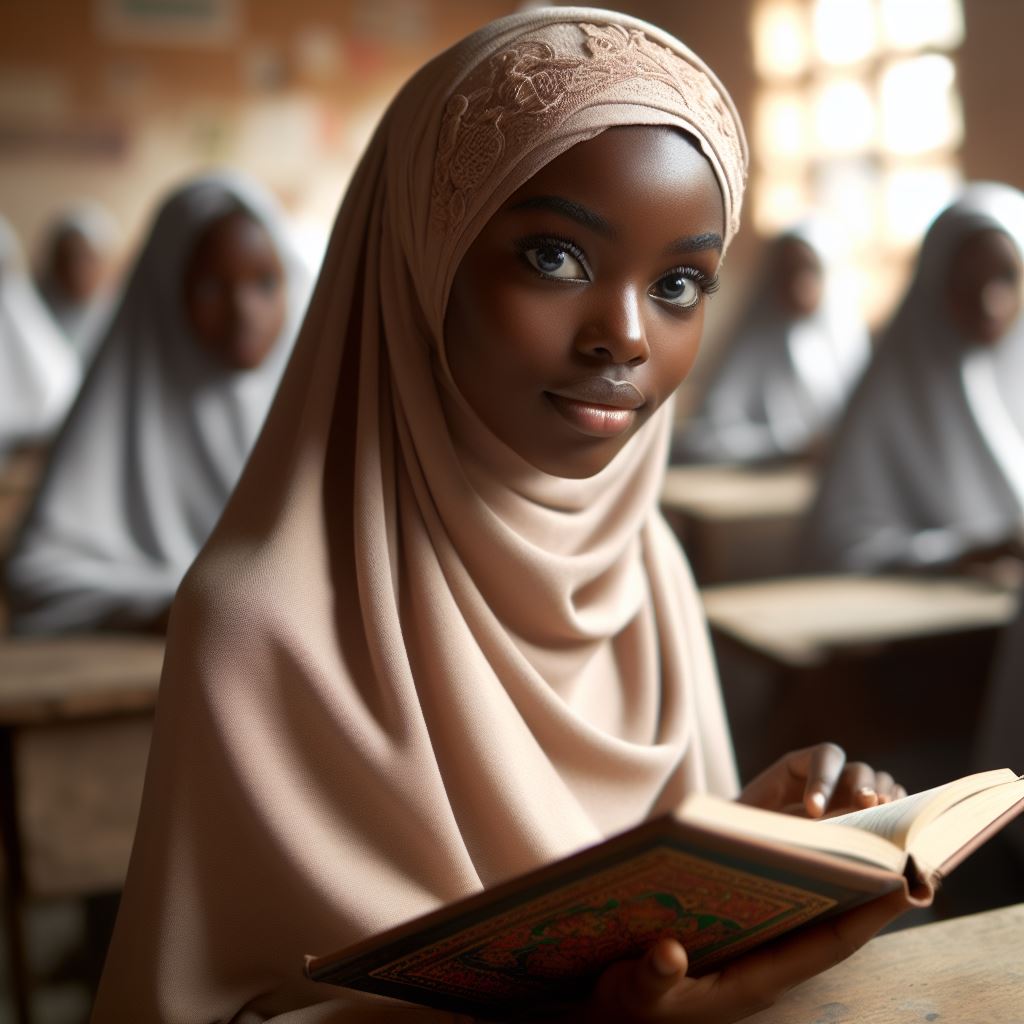Introduction
Madrassahs in Nigeria trace their origins back to the early spread of Islam in the region, which dates back over a millennium. lets discuss on Madrassahs Role in Nigerian Islamic Education.
The historical records indicate that Islamic education in Nigeria, including the establishment of Madrassahs, began as early as the 11th century.
The development of these educational institutions has been influenced by various Islamic scholarly traditions, as well as local cultural and societal norms.
Initially, Madrassahs in Nigeria served primarily as centers for Quranic education and the teaching of Islamic principles and values.
They were often established by local Islamic scholars and community leaders to provide religious instruction to young children and adults alike.
Over time, the curriculum of Madrassahs expanded to include subjects such as Arabic language, Islamic jurisprudence, theology, history, and other relevant disciplines.
Primarily, they serve as institutions for the transmission of Islamic knowledge and values, ensuring the preservation and dissemination of religious teachings within the Muslim community.
Role of Madrassahs in Preserving Islamic Traditions
Madrasahs play a crucial role in preserving Islamic traditions by serving as centers for teaching the Quran, Hadith, and Islamic principles.
These educational institutions are fundamental in transmitting the values, beliefs, and practices of Islam from one generation to the next, ensuring the continuity of Islamic heritage and knowledge.
Madrassahs as Centers for Teaching Quran, Hadith, and Islamic Principles
One of the primary functions of Madrassahs is to impart knowledge of the Quran, the holy book of Islam, to students.
Through rigorous memorization and study, students acquire a deep understanding of the Quranic teachings and principles.
Additionally, Madrassahs teach the Hadith, which are the sayings and actions of the Prophet Muhammad that provide guidance on various aspects of life.
Furthermore, Madrassahs focus on teaching Islamic jurisprudence, ethics, and theology, enabling students to develop a comprehensive understanding of their faith.
By instilling these teachings in students, Madrassahs play a vital role in shaping their religious identity and fostering a strong connection to their faith.
Importance of Preserving Islamic Traditions through Madrassah Education
The preservation of Islamic traditions is paramount for maintaining the cultural and spiritual heritage of the Muslim community.
Madrassah education is essential in safeguarding these traditions by ensuring that future generations are well-versed in the teachings and practices of Islam.
Through the structured curriculum and teachings in Madrassahs, students not only learn about the religious aspects of Islam but also gain insight into the rich history, culture, and traditions of the Muslim world.
This comprehensive education equips them with the knowledge and skills needed to uphold and promote Islamic traditions in their communities.
In addition, Madrassahs play a crucial role in fostering a sense of unity and solidarity among Muslims by providing a platform for learning and practicing their faith together.
This communal aspect of Madrassah education further strengthens the bond within the Muslim community and helps in preserving Islamic traditions through collective efforts.
In fact, Madrassahs serve as vital institutions for preserving Islamic traditions by imparting knowledge of the Quran, Hadith, and Islamic principles to students.
Through their focused teachings and educational programs, Madrassahs play a significant role in ensuring the continuity and integrity of Islamic heritage and traditions for generations to come.
Read: Scholarships for Communication Arts Students in Nigeria
Contribution of Madrassahs to Moral and Ethical Development
How Madrassahs instill good moral values and ethics in students
- One of the primary roles of Madrassahs is to instill good moral values and ethics in students.
- Students are taught the importance of honesty, integrity, and compassion towards others.
- Madrassahs emphasize the value of treating everyone with respect and kindness.
- Students learn to practice empathy, understanding, and forgiveness in their daily interactions.
- Through moral teachings, Madrassahs aim to develop students into responsible and upright individuals.
Role of Madrassahs in promoting piety, humility, and righteousness in students
- Madrassahs play a crucial role in promoting piety by teaching students the importance of devotion to God.
- Students are encouraged to develop a strong connection with their faith through prayer, supplication, and worship.
- Humility is a key virtue emphasized by Madrassahs to teach students the value of modesty and selflessness.
- Students learn to appreciate their strengths and weaknesses, fostering a sense of humility in their behavior.
- Righteousness is another core value promoted by Madrassahs to guide students towards moral excellence.
Read: Career Paths in Communication and Language Arts
Academic Curriculum of Madrassah
Islamic education in Madrassahs goes beyond teaching Quranic recitation; it encompasses a broad academic curriculum that aims to provide students with a holistic understanding of Islam.
In this section, we will delve into the academic curriculum of Madrassahs, highlighting the subjects taught and the importance of a well-rounded education in both religious and secular knowledge.
Subjects Taught in Madrassahs
Arabic Language
Madrassahs place a strong emphasis on teaching Arabic, as it is the language of the Quran and essential for understanding Islamic texts. Students are taught Arabic grammar, vocabulary, and writing to enable them to read and interpret sacred texts.
Islamic Jurisprudence
Also known as Fiqh, Islamic jurisprudence is a fundamental subject in Madrassahs. Students learn the principles and rules that govern Islamic law and its application in daily life. They study different schools of thought and the methodology of deriving legal rulings.
Theology
The study of theology, or Aqeedah, is another crucial component of the academic curriculum in Madrassahs. Students explore the core beliefs and principles of Islam, such as the belief in one God, prophethood, and the hereafter. They also delve into theological debates and discussions.
Importance of a Well-Rounded Education
A well-rounded education that encompasses both religious and secular knowledge is vital for the holistic development of students in Madrassahs. Here are some reasons why a comprehensive curriculum is essential:
- Spiritual Development: By studying subjects like Arabic language, Islamic jurisprudence, and theology, students deepen their understanding of Islam and strengthen their faith.
- Critical Thinking Skills: Engaging with diverse subjects enables students to develop critical thinking skills and analytical abilities, which are beneficial in academic pursuits and daily life.
- Cultural Awareness: Learning about different aspects of Islamic culture and history broadens students’ perspectives and fosters a sense of cultural awareness and appreciation.
- Integration of Knowledge: A well-rounded education helps students integrate religious teachings with secular knowledge, creating a balanced worldview that takes into account both spiritual and worldly aspects.
In essence, the academic curriculum of Madrassahs plays a vital role in shaping the education and character of students.
Madrassahs offer a diverse range of subjects, including Arabic, Islamic jurisprudence, and theology. They provide students with a comprehensive understanding of Islam. Madrassahs equip students with knowledge and skills to navigate the complexities of the modern world.
A well-rounded education combines religious and secular knowledge. This nurtures individuals grounded in faith. They contribute positively to society.
Read: Global Impact of African and Asian Studies Research
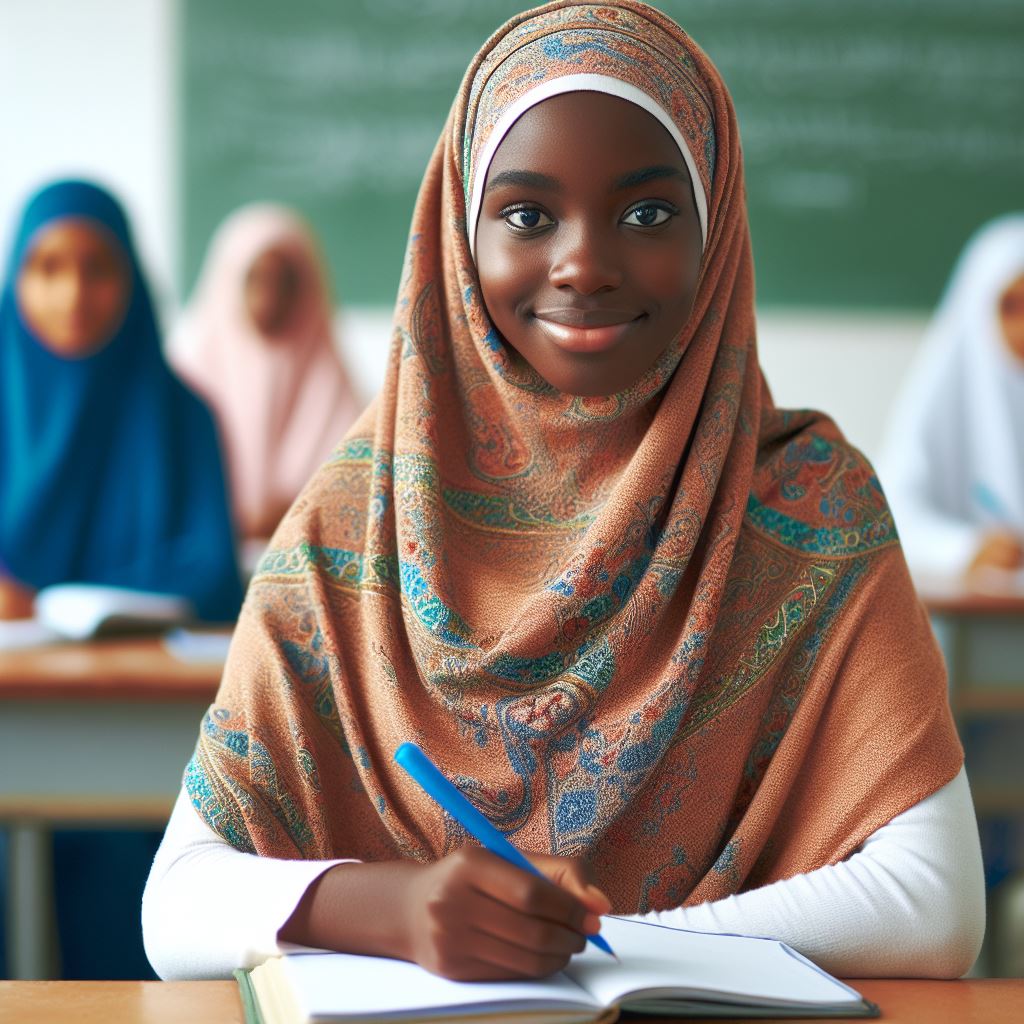
Uncover the Details: Global Partnerships in African and Asian Studies
Influence of Madrassahs on Nigerian Society
Madrasahs in Nigeria play a significant role in shaping the local community and society as a whole.
Impact of Madrasah Education on the Local Community and Society
Madrasah education profoundly impacts the local community by fostering community cohesion and identity among students.
Individuals gather at Madrasahs to gain knowledge and understand Islamic teachings and principles deeply.
Madrasahs also offer platforms for social interaction and networking, enabling students to build strong relationships.
The camaraderie and solidarity within the Madrasah community enrich the local community’s social fabric beyond the classroom
Moreover, Madrasah education equips students with valuable skills and knowledge that can contribute to the economic development of Nigerian society.
By instilling a strong work ethic and a sense of responsibility in its graduates, Madrasahs play a crucial role in shaping future leaders and entrepreneurs who can drive positive change in their communities.
Role of Madrasah Graduates in Promoting Peace, Unity, and Tolerance in Nigeria
Madrasah graduates play a pivotal role in promoting peace, unity, and tolerance in Nigeria through their actions and contributions to society.
These individuals are often seen as role models within their communities, embodying the values of compassion, empathy, and understanding.
By upholding the teachings of Islam and demonstrating qualities such as forgiveness and patience, Madrasah graduates inspire others to embrace a culture of peace and harmony.
They serve as peacemakers and mediators in times of conflict, helping to bridge divides and promote reconciliation among different groups.
Additionally, Madrasah graduates are instrumental in fostering unity and solidarity among diverse religious and cultural groups in Nigeria.
They interact with people of varying backgrounds, promoting mutual respect and understanding. This fosters collaboration and transcends social barriers.
Basically, Madrasahs in Nigeria play a vital role in shaping the local community and society by fostering a sense of community identity and solidarity among its students.
Furthermore, Madrasah graduates contribute to promoting peace, unity, and tolerance in Nigeria through their actions and interactions with others.
Overall, Madrasah education plays a crucial role in building a harmonious and inclusive society in Nigeria.
Read: Language Learning in African and Asian Studies
Discover More: Art Therapy: Healing Through Fine and Applied Art
Find Out More: Top Nigerian Universities for Economics Studies
Challenges Faced by Madrassahs in Nigeria
The difficulties Madrassahs encounter, such as lack of funding, resources, and government support
Madrassahs in Nigeria face a variety of challenges that hinder their ability to fulfill their educational and societal roles effectively. These challenges include:
- Lack of Funding: Many Madrassahs operate on minimal budgets, relying primarily on community donations and contributions from well-wishers. This often results in inadequate facilities, limited resources, and a lack of qualified teachers.
- Limited Resources: Madrassahs often struggle to access essential resources such as textbooks, teaching materials, and modern educational technology. This hampers the quality of education they can provide and limits students’ exposure to diverse learning experiences.
- Government Support: To strengthen Nigeria’s Madrassah system, implement targeted strategies for improvement, enabling valuable Islamic education provision and holistic community development.
Ways to overcome these challenges and strengthen the Madrassah system in Nigeria
To overcome these challenges and strengthen the Madrassah system in Nigeria, several strategies can be considered:
Community Engagement and Support
Encouraging greater community involvement and support for Madrassahs can help alleviate financial constraints. Communities can establish fundraising initiatives, volunteer their time and expertise, and provide in-kind donations of resources and materials.
Capacity Building
Investing in teacher training programs and professional development opportunities can enhance the quality of instruction in Madrassahs.
Training teachers in modern pedagogical techniques, curriculum development, and educational leadership can improve learning outcomes for students.
Public-Private Partnerships
Collaborating with government agencies, non-governmental organizations (NGOs), and private sector stakeholders can provide additional resources and support for Madrassahs.
These partnerships can facilitate access to funding, infrastructure development, and educational initiatives aimed at improving the Madrassah system.
Advocacy and Policy Reform
Advocating for the recognition and inclusion of Madrassahs within the broader educational framework of Nigeria can help ensure equitable access to resources and support.
This may involve lobbying policymakers, engaging with educational authorities, and promoting dialogue between Madrassah representatives and government officials.
To strengthen Nigeria’s Madrassah system, implement targeted strategies for improvement, enabling valuable Islamic education provision and holistic community development.
Learn More: Nigerian Music Schools: Curriculum Overview
Uncover the Details: Overview of European Language Studies in Nigerian Schools
Find Out More: Benefits of Learning Chinese in Nigerian Schools
Conclusion
In closing, Madrassahs in Nigeria play a crucial role in the country’s Islamic education landscape, serving as vital institutions for the transmission of religious knowledge, moral values, and societal development.
Throughout history, Madrassahs have provided a foundation for Islamic learning, offering instruction in Quranic studies, Arabic language, and various Islamic sciences.
Over time, their curriculum has expanded to encompass a broader range of subjects, reflecting the evolving educational needs of the Muslim community.
Despite facing challenges such as limited funding, resources, and government support, Madrassahs remain resilient institutions committed to their mission of nurturing religious identity, fostering moral character, and promoting community cohesion.
Through their emphasis on Quranic education, ethical teachings, and community engagement, Madrassahs contribute to the spiritual and moral development of individuals, instilling values of compassion, integrity, and social responsibility.
They serve as centers of learning and spiritual growth, providing a solid foundation for students to develop a deep understanding of their faith and its principles.

